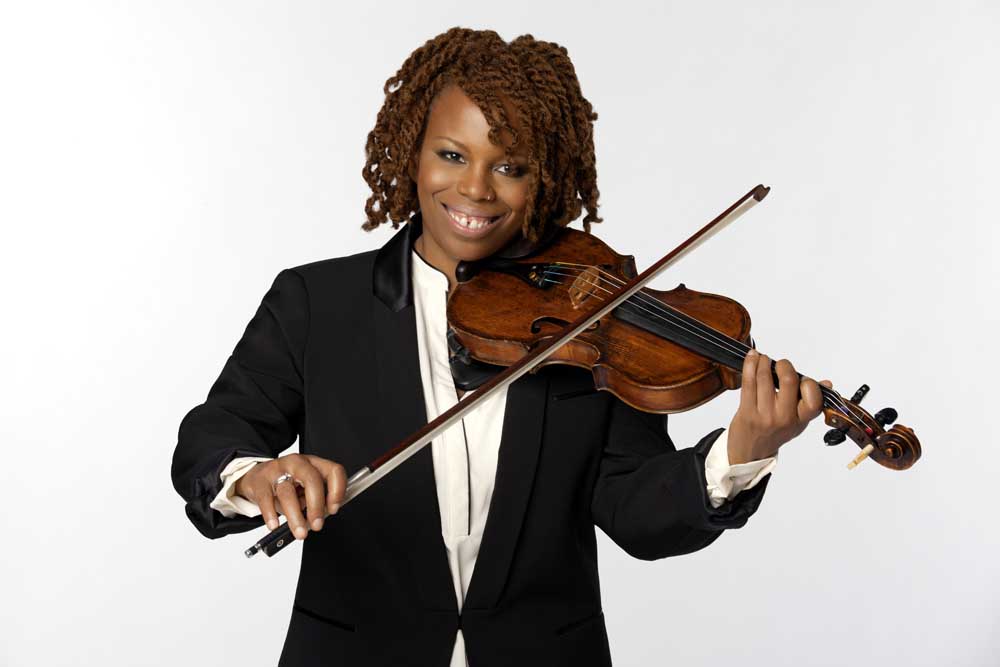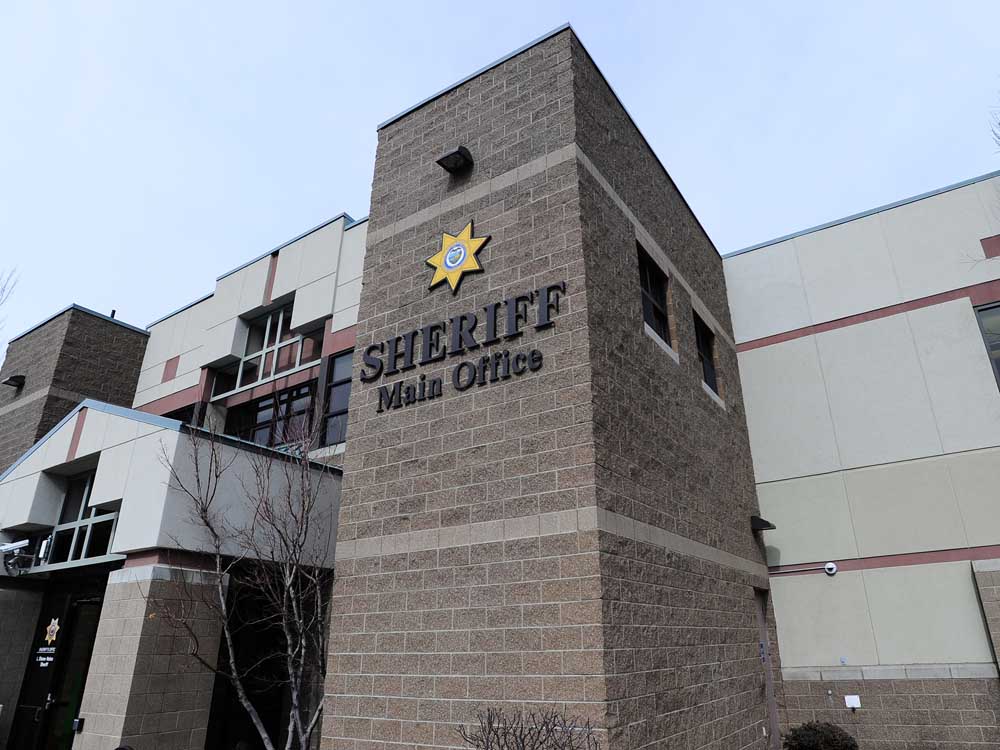Regina Carter pays tribute to Ella in Bend
Published 12:00 am Thursday, February 15, 2018

- Jazz violinist Regina Carter will bring her longtime quintet to Riverhouse Jazz at Riverhouse on the Deschutes on Friday and Saturday. Carter will perform songs from her recent album "Accentuate the Positive," a tribute to Ella Fitzgerald. (David Katzenstein/Submitted photo)
Expect to hear some Ella Fitzgerald at Regina Carter’s Riverhouse Jazz shows this weekend.
The jazz violinist and bandleader paid tribute to Fitzgerald on her 10th studio album, “Accentuate the Positive,” released in April to mark the 100th anniversary of the First Lady of Song’s birth. But the record isn’t your typical tribute to a jazz singer: With the exception of the title track and “Undecided,” the songs are presented instrumentally, allowing Carter to dig into Fitzgerald’s melodies. Also, Carter focused on lesser-known Fitzgerald songs (again, excepting the title track).
Trending
In order to help draw the audience into the shows, Carter has been playing snippets of Fitzgerald’s original recordings in concert before her band’s versions. Carter has used this approach before with her two previous album cycles: 2014’s “Southern Comfort,” which featured reinterpreted spirituals and folk songs from the American South; and 2010’s “Reverse Thread,” which explored traditional African music and instruments.
“I chose tunes that were a little bit more obscure, so with that, and because the arrangements are so different — we’re not doing straight-ahead arrangements — I wanted to play a little bit (of the original) so people can hear the difference and get a perspective of what we’ve done with the tune,” Carter said recently from Oakland University in Rochester, Michigan. She was at the university, her alma mater, for a week-long residency ahead of her Riverhouse shows Friday and Saturday.
“But not only that — for a lot of people, it’s their first time hearing some of these tunes. But there are a few that when they hear them, the audience, you can hear that they recognize the tune. Either they didn’t know the title or they forgot about it — it was something that they heard during their childhood. So it’s always a lot of fun to get the audience’s reactions to some of these tunes.”
While many jazz artists will discuss the pieces they perform in a live setting, it’s less common for them to dedicate time in their own shows to the originals the way Carter does. But it goes hand-in-hand with her performing philosophy.
“The thing is, is I want the audience to feel included — I don’t want them to have a question mark over their head, like, what was that?” she said. “And sometimes, that’s OK; it might be an original piece. But with these tunes, because they are Ella tunes, then I feel like it draws them in more and they feel more connected, and that’s what I wanted. It’s supposed to be a shared experience with the audience.”
That inclusiveness extends to Carter’s set lists with her longtime piano-bass-drums-guitar quintet, which will be featured in Bend. She writes a new one every night but often won’t follow it, which drives her bandmates crazy, she said.
Trending
“And then I come out onstage, and they say, ‘What’s the point? You’re gonna change it anyway’ — which is true,” Carter said. “… I try to get a sense of the room and go with what’s my gut feeling for a first tune and then kind of go from there. But sometimes, I come out, and as I’m playing, whatever the energy is that I’m getting from the audience, something in me will say, oh, maybe do this tune next instead, or do this. I have an idea, but it does change.”
Carter’s musical career has reflected her own widely varying tastes. Growing up in Detroit, she was exposed to Motown and soul (both key influences heard on “Accentuate the Positive”), and started learning piano at age 2. By age 4, she was studying classical violin under the Suzuki Method.
Vocalist Carla Cook, who sings on “Undecided,” turned Carter onto jazz violin and Fitzgerald. Both would have a lasting affect on Carter as she began studying jazz at Oakland University, after leaving the classical violin program at the New England Conservatory of Music in Boston.
“When I went to school here at Oakland University … I went to the big band teacher, Marvin ‘Doc’ Holladay,” Carter said. “And I told him I wanted to play jazz, and he said, ‘OK, sit in the saxophone section and phrase how they phrase, breathe when they breathe and stop listening to violin players. Listen to horn players and vocalists.’ As a child, I had already heard Ella and Nat King Cole, so it was just fun to try and imitate their use of vibrato, which is very different than I learned as a European classical violinist. So slowing that down and then just really getting the characteristic of the voice, whether it’s a slide into the note, or trying to make the bow sound like it’s actually breathing — like it’s running out of breath.”
Indeed, Carter calls herself a “closet singer,” and stresses the similarity between the human voice and violin. Fitzgerald has been a key influence in that regard, and Carter has often covered her songs before (“Oh, Lady Be Good” from 1999’s “Rhythms of the Heart”; “A-Tisket, A-Tasket” from 2006’s “I’ll Be Seeing You: A Sentimental Journey”). Beyond celebrating the centennial of Fitzgerald’s birth, “Accentuate the Positive” made sense creatively.
“With every record, it’s always difficult for me to kind of rein myself in and figure out what I’m going to do, because I love music, period. There’s no one form of music that I could say, ‘This is what I’m gonna do,’” Carter said. “… With each project, I try to come up with a theme to help me focus. And so with this project, again, it was just like — the beginning is the most painful, like, what am I gonna do? And a dear friend of mine, Carla Cook, … she said, ‘You always record Ella; you talk about Ella all the time. Her birthday’s coming up; why not do a whole record?’ I never thought of doing a whole record of one person’s music, but it made sense, and especially with Ella because her tastes were all over the place — she did pop music, of course bebop, swing, she did country-western, doo-wop.”








